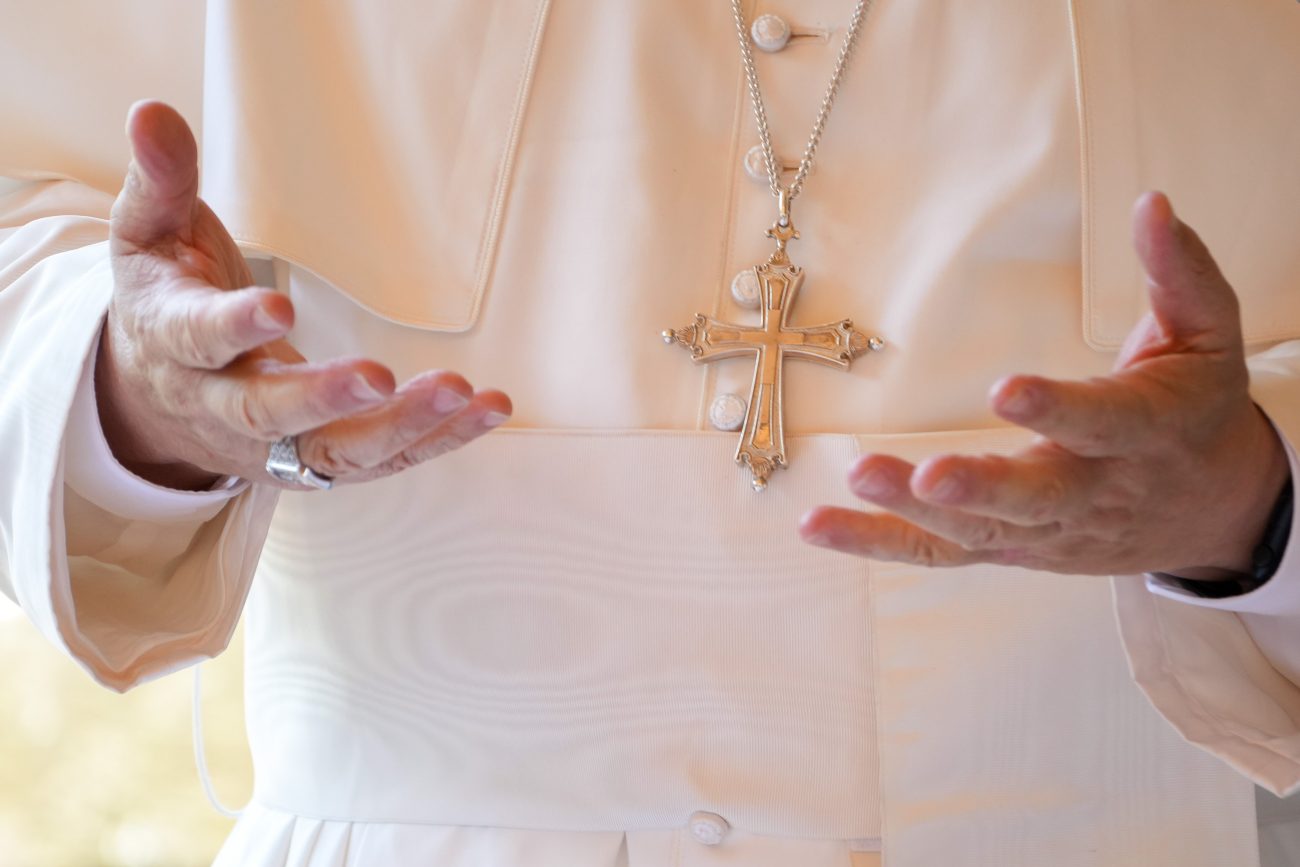VATICAN CITY (CNS) — Many Christians “need to go back and re-read the Gospel” because they have forgotten that faith and love for the poor go hand in hand, Pope Leo XIV said in his first major papal document.
“Love for the poor — whatever the form their poverty may take — is the evangelical hallmark of a Church faithful to the heart of God,” the pope wrote in “Dilexi Te” (“I Have Loved You”), an apostolic exhortation “to all Christians on love for the poor.”
Pope Leo signed the document Oct. 4, the feast of St. Francis of Assisi, and the Vatican released the text Oct. 9.
The document was begun by Pope Francis, Pope Leo said, but he added to it and wanted to issue it near the beginning of his papacy “since I share the desire of my beloved predecessor that all Christians come to appreciate the close connection between Christ’s love and his summons to care for the poor.”
The connection is not new or modern and was not a Pope Francis invention, he said. In fact, throughout the Hebrew Scriptures “God’s love is vividly demonstrated by his protection of the weak and the poor, to the extent that he can be said to have a particular fondness for them.”
“I am convinced that the preferential choice for the poor is a source of extraordinary renewal both for the Church and for society,” Pope Leo wrote, “if we can only set ourselves free of our self-centeredness and open our ears to their cry.”
As he has done from the beginning of his papacy in May, the pope decried the increasing gap between the world’s wealthiest and poorest citizens and noted how women often are “doubly poor,” struggling to feed their children and doing so with few rights or possibilities.
Pope Leo also affirmed church teaching since at least the 1960s that there are “structures of sin” that keep the poor in poverty and lead those who have sufficient resources to ignore the poor or think they are better than them.
When the church speaks of God’s preferential option for the poor, he said, it does not exclude or discriminate against others, something “which would be impossible for God.”
But the phrase is “meant to emphasize God’s actions, which are moved by compassion toward the poverty and weakness of all humanity,” he wrote.
“Wanting to inaugurate a kingdom of justice, fraternity and solidarity,” Pope Leo said, “God has a special place in his heart for those who are discriminated against and oppressed, and he asks us, his Church, to make a decisive and radical choice in favor of the weakest.”
That choice, he said, must include pastoral and spiritual care as well as education, health care, jobs training and charity — all of which the church has provided for centuries.
The document includes a separate section on migrants with the pope writing, “The Church has always recognized in migrants a living presence of the Lord who, on the day of judgment, will say to those on his right: ‘I was a stranger, and you welcomed me.'”
The quotation is from the Gospel of Matthew 25:35, which is part of the “Judgment of the Nations” in which Jesus clearly states that his followers will be judged on how they care for the poor, the sick, the imprisoned and the foreigner.
“The Church, like a mother, accompanies those who are walking” in search of a better, safer life for themselves and their families, Pope Leo wrote.
“Where the world sees threats, she (the church) sees children; where walls are built, she builds bridges,” he continued. “She knows that her proclamation of the Gospel is credible only when it is translated into gestures of closeness and welcome.”
The church knows, he said, “that in every rejected migrant, it is Christ himself who knocks at the door of the community.”
In his exhortation, Pope Leo went through biblical references to the obligation to love and care for the poor and cited saints and religious orders throughout history that have dedicated themselves to living with the poor and assisting them.
A section of the document focuses on the “fathers of the church,” the early theologians, who, he said, “recognized in the poor a privileged way to reach God, a special way to meet him. Charity shown to those in need was not only seen as a moral virtue, but a concrete expression of faith in the incarnate Word,” Jesus.
Of course, for Pope Leo, an Augustinian, St. Augustine of Hippo was included in the document. The saint, “The Doctor of Grace, saw caring for the poor as concrete proof of the sincerity of faith,” the pope wrote. For Augustine, “anyone who says they love God and has no compassion for the needy is lying.”
And while the pope wrote that “the most important way to help the disadvantaged is to assist them in finding a good job,” he insisted that when that is not possible, giving alms to a person asking for money is still a compassionate thing to do.
“It is always better at least to do something rather than nothing,” Pope Leo wrote.
Still, the pope said, Christians cannot stand idly by while the global economic system penalizes the poor and makes some people exceedingly wealthy. “We must continue, then, to denounce the ‘dictatorship of an economy that kills,'” he said, quoting a phrase Pope Francis used.
“Either we regain our moral and spiritual dignity, or we fall into a cesspool,” he wrote.
“A Church that sets no limits to love, that knows no enemies to fight but only men and women to love,” Pope Leo said, “is the Church that the world needs today.”
PREVIOUS: Jesus Wants to Be Close, Rekindle Hope, on Life’s Journey, Pope Says
NEXT: Begun by Pope Francis, ‘Dilexi Te’ is 100% Pope Leo’s, Cardinal Says



Share this story